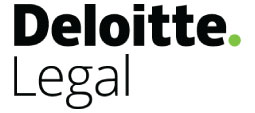The EU Directives on Work-life balance and on Transparent and predictable working conditions were introduced into the Latvian national legislation in August 2022 and brought about significant changes and obligations for the employers. What do they mean for businesses?
This report is designed to help companies to understand the requirements and how they have been implemented.
Implementation of EU Directive on Work-Life Balance (EU Directive 2019/1158)
Has the directive been implemented in the jurisdiction?
Yes.
What is the status of the implementation or draft implementation?
Amendments to Latvia’s Labour Law were adopted on 16 June 2022. They came into effect on 01 August 2022.
What are the key changes for employers and employees?
1. Paternity leave (“atvaļinajums berna tevam”)
- A father now has the right to paid leave of 10 working days. (Previously it was 10 calendar days.)
- This leave can be used within 6 months of the birth of a child.
- Leave pay is financed by social insurance.
2. Parental leave (berna kopsanas atvalinajums)
- If the leave is taken in increments, these may not be shorter than 1 calendar week without interruption.
- Parents may apply for flexible parental leave.
- The employer is obliged to assess such a request and notify the employee within 1 month of the application of the options for the flexible use of parental leave.
3. Carer’s leave (aprupetaja atvalinajums)
- This new entitlement is for leave to care for a family member or other person living in the same household.
- It allows up to 5 working days of unpaid leave in a calendar year.
- It may be used in increments.
4. Employment rights
As additional protection for employees, exercising the right to annual paid leave may not serve as the basis for a notice to terminate the employment contract.
5. Flexible working arrangements
An employee who has a child aged under 8 years, or who has to personally care for a close family member or a person living in the same household who requires substantial care or support due to a serious medical condition, has the right to request the employer to adapt how working hours are organised.
The employer is obliged to assess the employee’s request and, not later than within 1 month, notify the employee of opportunities for adapting his or her working hours.
What are the main actions for HR departments in preparing for the changes?
- Review, revise or create internal labour documentation such as:
- Work Regulations and other employment policies and practices applicable to employees regarding their parental entitlements;
- Application forms required to apply for new types of leave or releases.
- Training to acquaint HR colleagues with the new rules.
Implementation of EU Directive on Transparent and Predictable Working Conditions (EU Directive 2019/1152)
Has the directive been implemented in the jurisdiction?
Yes.
What is the status of the implementation or draft implementation?
Amendments to Latvia’s Labour Law were adopted on 16 June 2022. They came into effect on 01 August 2022.
What are the key changes for employers and employees?
1. Probationary period
The maximum length of a probationary period is linked as follows to the length of the contract which is expected to follow the probationary period:
- If the employment agreement is supposed to be for a fixed term and shorter than 6 months, then the probationary period should not exceed 1 month. If the employment agreement is supposed to be for a fixed term of at least 6 months but less than 12 months, then the probationary period cannot exceed 2 months.
- A probationary period exceeding these terms but not exceeding 3 months may be agreed upon in a collective agreement concluded with a trade union representing
the employee. - If the employment agreement is supposed to be for a fixed term of at least 12 months or for an indefinite term, then the probationary period will usually last for 3 months. However, a probationary period exceeding 3 months but not exceeding 6 months may be agreed upon in a collective agreement concluded with a trade union representing the employee.
2. Time of performance of work
- If the work schedule of an employee is not completely or mostly predictable, then the employee may only be employed to conduct work within set reference hours and days set in advance of which the employer has duly notified the employee.
- An employee has the right not to perform work if the employer has not duly notified the employee of the specific time for the work to be carried out.
- If the employer has failed to give notice of the cancellation of the performance of the work within the period specified in the employment contract, then the employee is entitled to receive such remuneration as they would have received if they had performed the work.
3. Employment contract
An employment contract shall include elements indicating:
- That the employee may freely determine their workplace;
- The daily or weekly working hours agreed upon, provided the work schedule of the employee is completely or mostly predictable.
- If part-time work is agreed upon and the work schedule is not completely or mostly predictable, elements in the employment contract shall indicate:
- That the work schedule is variable;
- The working hours agreed upon, which are the guaranteed paid working hours within the framework of a month;
- The time when the employee may perform work or be obliged to perform work;
- The minimum notice period before the commencement of the work or its cancellation.
4. Timing and means of information
The employer shall ensure that the following information is available free of charge to employees of the undertaking, that it is comprehensible, complete and easy to access (including via the use of electronic means such as online portals and information systems):
- The amount of remuneration and time of payment.
- The daily or weekly working hours.
- The length of annual paid leave.
- The period of and procedures for giving notice of termination of the employment contract.
- The probationary period and its duration (if such a probationary period is set).
- The right of the employee to training (if the employer provides training).
- The social security institutions which receive social contributions relating to the employment relationship, and any protection provided by the employer (if applicable).
The employer shall notify an employee in writing of any changes to the collective agreement or to the working procedure regulations which directly affect the employee before the day when the changes enter into effect but not later than on the day when they enter into effect.
5. Collective agreements
Specific provisions in a collective agreement which erode the legal status of an employee are permitted provided they do not reduce the overall level of protection for employees.
6. Obligation to provide information
A work placement service provider as an employer shall notify the employee of the recipient of the work placement service in writing as soon as this becomes known. In any event, this must be before the expected appointment of the employee to perform work for the benefit and under the management of the recipient of the work placement service.
7. Modification of the employment relationship
- An employer who posts an employee on an official trip or work trip abroad must notify the employee in writing, in good time before the posting, of the country or countries in which the work is intended to be performed, and the anticipated duration of the time to be spent working abroad.
- If the official trip or work trip is longer than 4 weeks without interruption, an employer also has to notify the employee of the following:
- The currency in which remuneration will be disbursed.
- The cash benefits or benefits in kind in relation to the work tasks, if such are provided.
- The possibility of and procedures for repatriation, if such are provided.
What are the main actions for HR departments in preparing for the changes?
- Review and revise internal labour documentation such as:
- Templates of additional information in employment agreements relating to the new rules;
- Employment policies and practices (especially those concerning an employee’s probationary period, new appointments and working schedule);
- Templates of documentation concerning business trips.
- Training to acquaint HR colleagues with the new rules.
By Ivita Samlaja, Head of Legal, and Kaspars Fridenbergs-Ansbergs, Manager, Deloitte Legal Latvia
This communication contains general information only, and none of Deloitte Touche Tohmatsu Limited (“DTTL”), its global network of member firms or their related entities (collectively, the “Deloitte organization”) is, by means of this communication, rendering professional advice or services. Before making any decision or taking any action that may affect your finances or your business, you should consult a qualified professional adviser. No representations, warranties or undertakings (express or implied) are given as to the accuracy or completeness of the information in this communication, and none of DTTL, its member firms, related entities, employees or agents shall be liable or responsible for any loss or damage whatsoever arising directly or indirectly in connection with any person relying on this communication. DTTL and each of its member firms, and their related entities, are legally separate and independent entities.


